Ordinance Overview
Background
When food and plant material break down in a landfill they release methane, a harmful greenhouse gas and leading cause of climate change. To respond to the climate crisis, California passed Senate Bill 1383 to reduce the amount of food scraps and other compostable materials sent to landfills. The law went into effect January 1, 2022 and aims to reduce organic materials going to landfill by 75% by January 1, 2025.

The law also sets targets to recover and donate edible food. That's because much of the food currently thrown away in California is perfectly good to eat and could feed people instead of going to waste or even composting. Setting up systems to make this high-quality food available for people to eat will not only cut greenhouse gas emissions, but also help alleviate food insecurity in our communities.
State vs. Local Law
In Alameda County, SB 1383 regulations are implemented and enforced under the Organics Reduction & Recycling Ordinance, through a partnership between StopWaste, the cities of Alameda County, their solid waste service providers, and the environmental health departments. You can find the full Ordinance here. For more background about the State law visit CalRecycle's SB 1383 webpage.
Requirements under the Law
The law affects all generators of compostable and recyclable materials, however, requirements vary slightly for different generators.
Residents
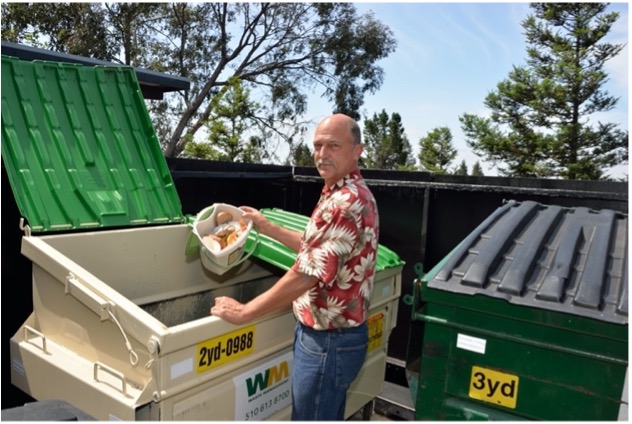
If you need compost or recycling service or outdoor containers, contact your garbage company (tenants: contact your landlord or property manager).
Businesses, nonprofits, institutions, schools*, and multi-family properties
Under the law these sites must:
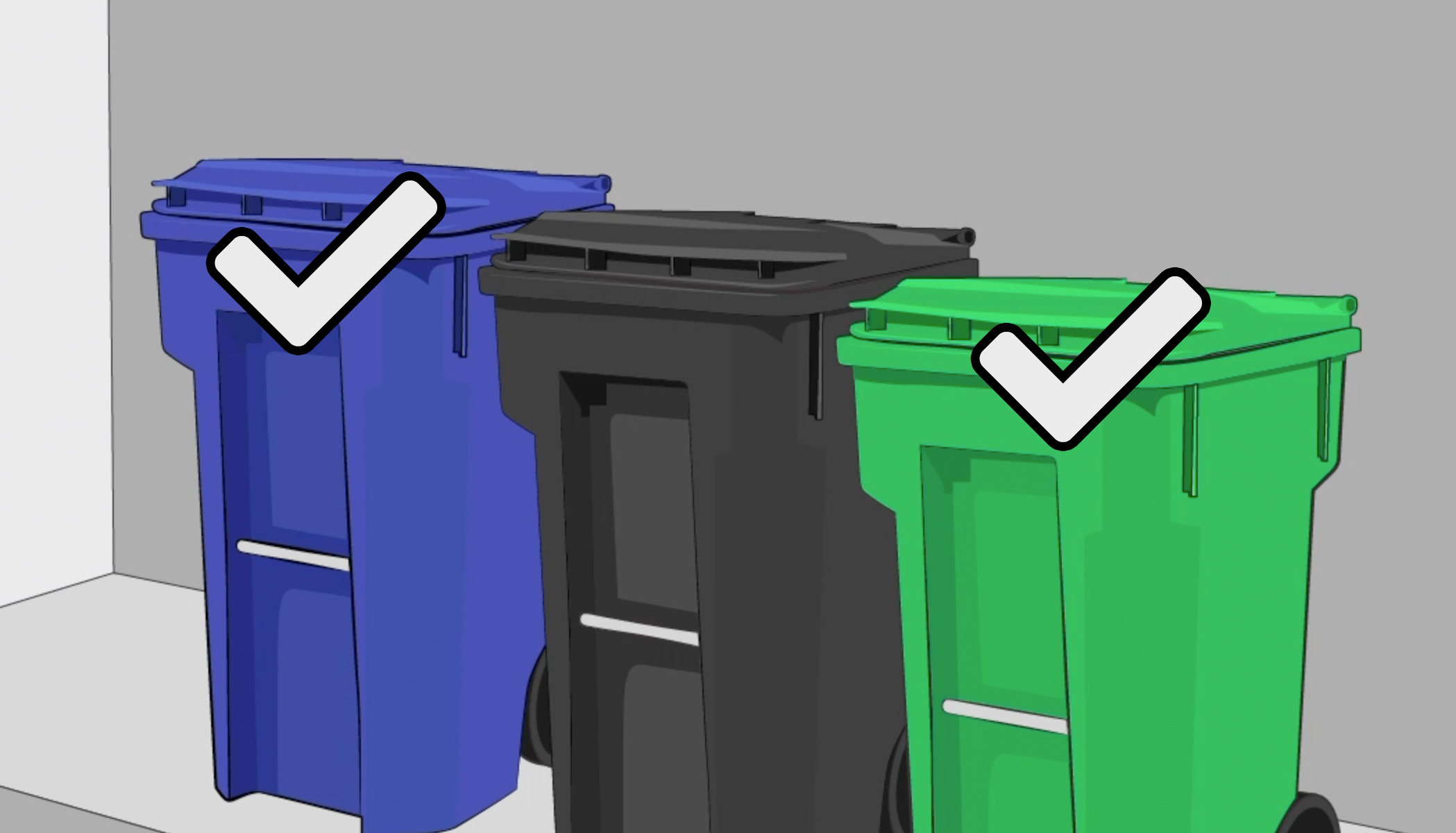
1. Get Service
Sign up for compost (organics) and recycling collection service (or have an approved waiver on file).
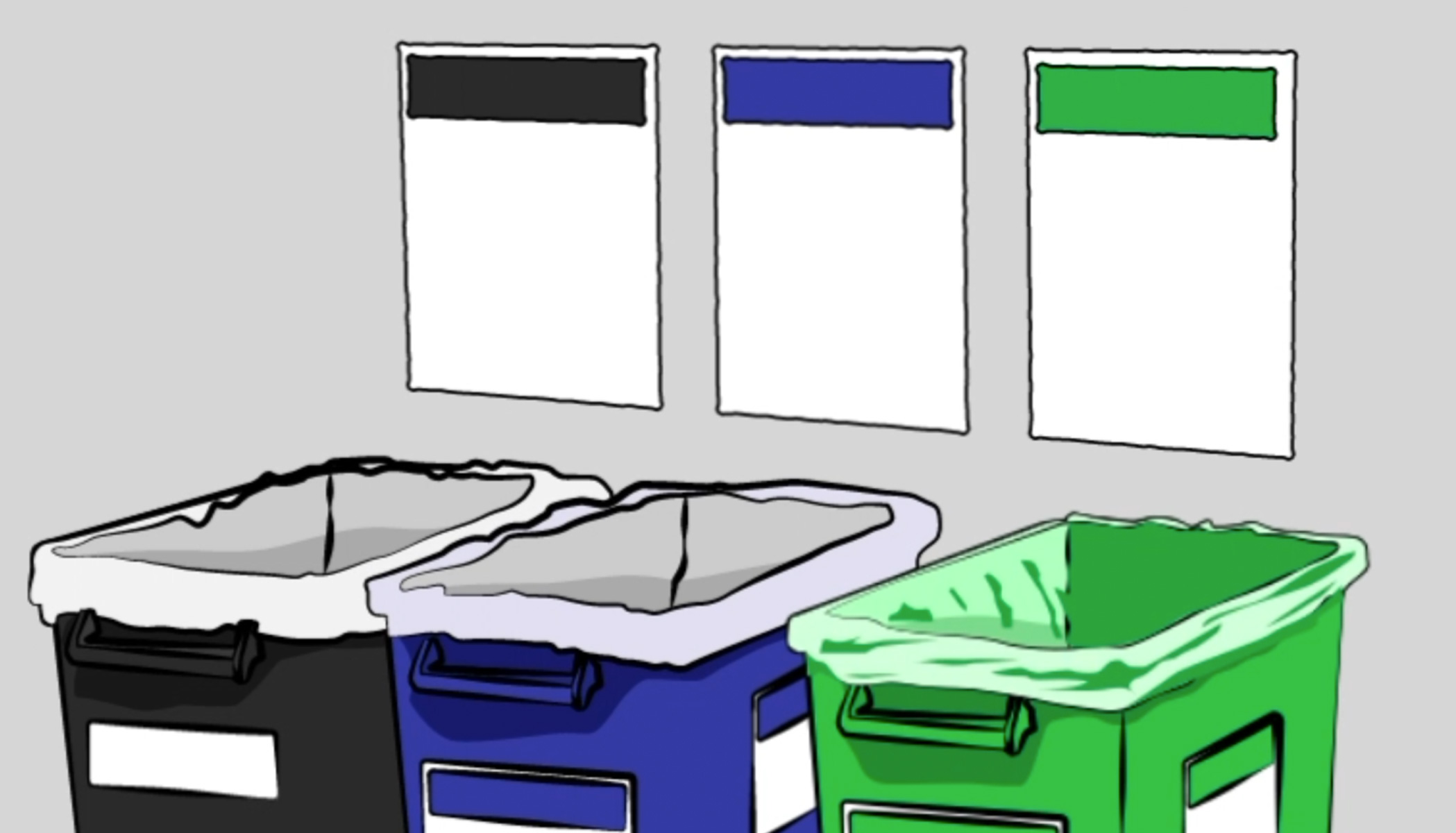
2. Set Up Indoor Bins
Place color-coded and labeled recycling and compost bins next to all garbage bins (not required in restrooms).
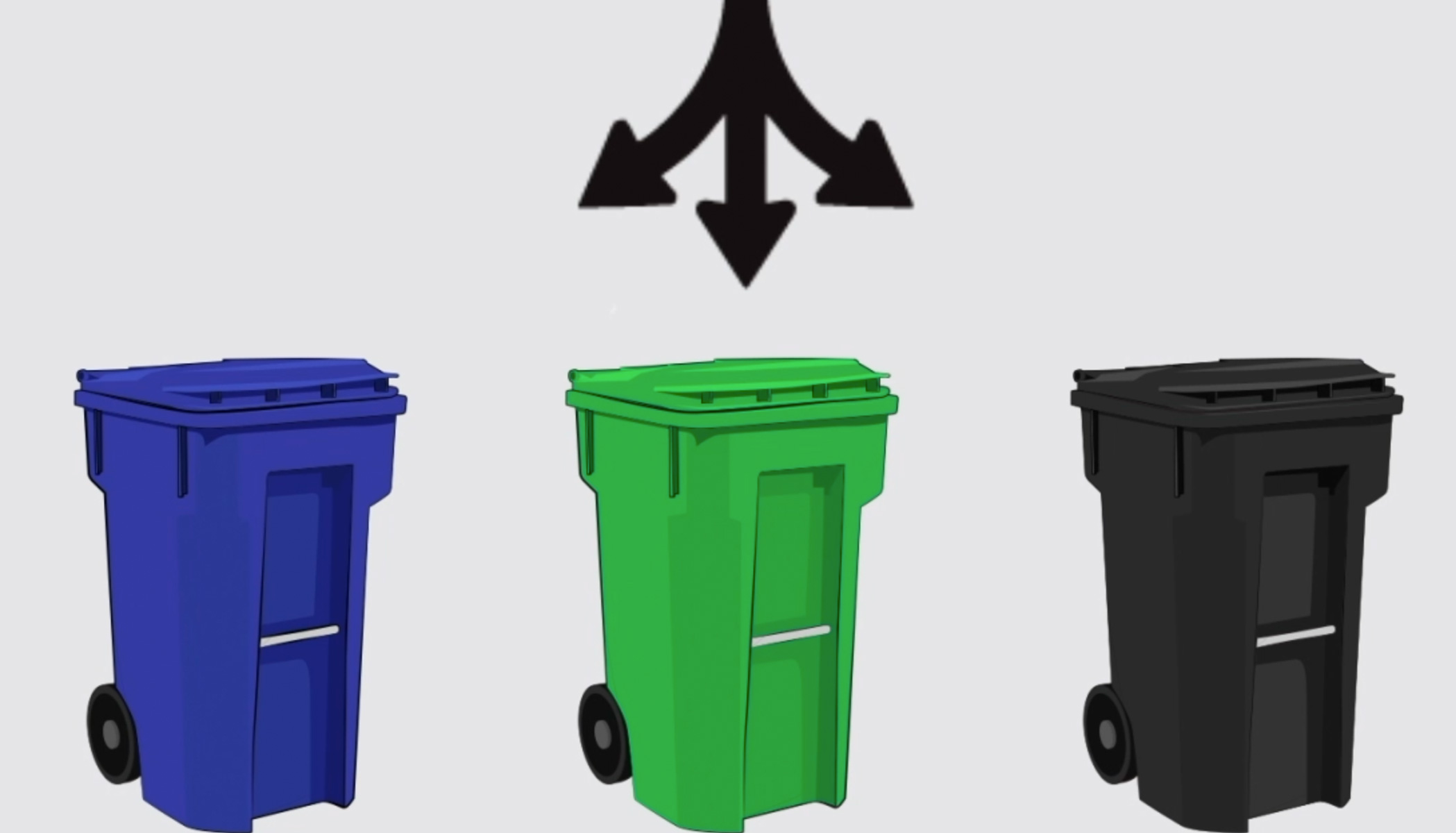
3. Sort Correctly
Sort materials into the proper bins – compost, recycling, and landfill – and inform employees, tenants, and contractors of the rules (at least annually and during move in and move out).
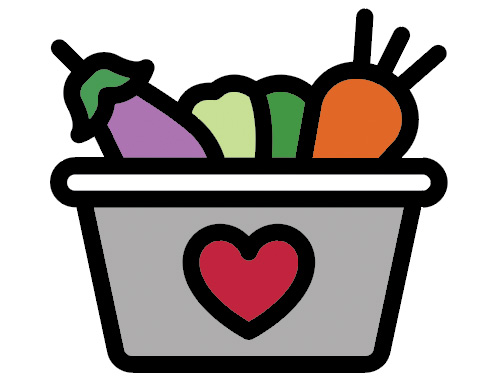
4. Donate Surplus Food (if applicable)
In addition to the rules above, some businesses that generate surplus edible food – such as grocery stores, food distributors, and large restaurants – must recover and donate their surplus edible food to feed people.
* Notes about public and private schools:
- The rules: The same rules above apply to both public and private schools.
- Free resources: There are some differences between resources for public schools and resources for private schools.
- Enforcement: State agency CalRecycle is responsible for enforcing the law at public schools, while StopWaste is the primary enforcement agency for private schools.


